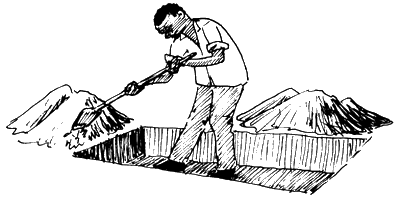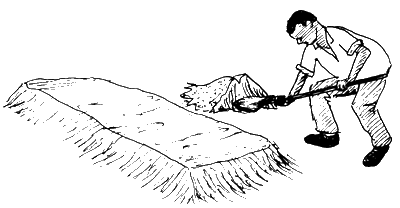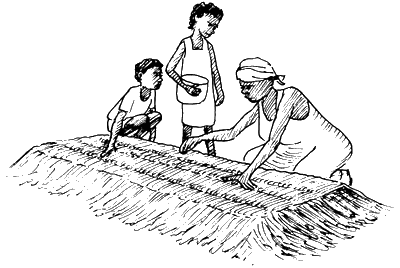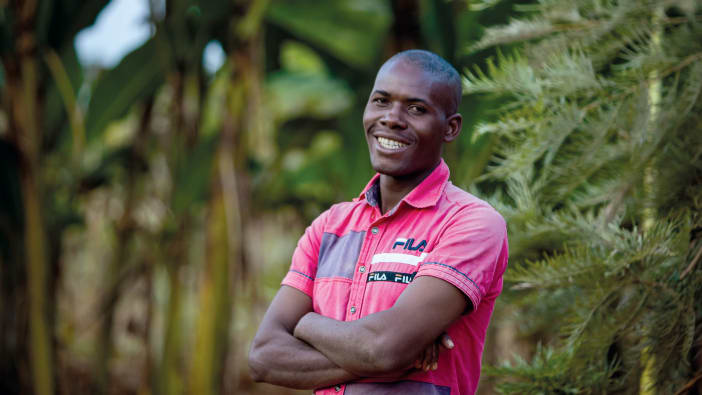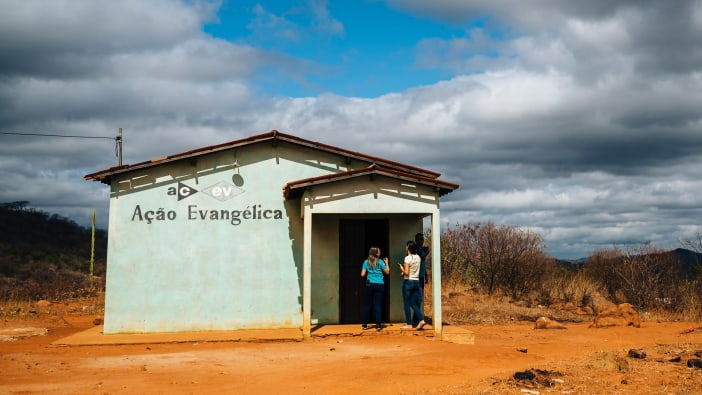Many homes, particularly in urban areas, have little room for growing crops or vegetables. However, outside nearly every house is an area of bare ground. The soil may be hard or infertile and people often do not consider using it for growing vegetables. But here is one way of using this unused space for a tiny garden.
The system works best if a number of families agree to work together, building one garden each week. The idea may also be useful in refugee camps.




